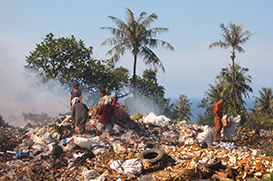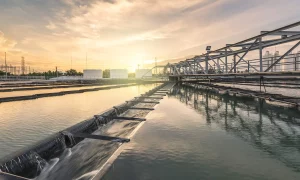Health, Dignity and Development : what will it take?
The actions proposed in this report are based on sound principles and fundamental truths and contributes to the understanding of the broader water resources management actions needed to help achieve the Millennium Development Goals.

Four out of every ten people in the world do not have access to even a simple pit latrine; and nearly two in ten have no source of safe drinking water. This silent humanitarian crisis kills some 3,900 children every day; thwarts progress toward all the Millennium Development Goals, especially in Africa and Asia; and robs the poorest – particularly women and girls – of their health, time, and dignity. Water supply and sanitation services, as well as water as a resource, are critical to sustainable development- from environmental protection and food security to increased tourism and investment, from the empowerment of women and the education of girls to reductions in productivity losses due to morbidity and malnutrition.
The UN Millennium Project Task Force on Water and Sanitation sought to answer two questions: What will it take to expand water supply and sanitation coverage dramatically and sustainably? How can the use of water as a resource be optimized to achieve the Millennium Development Goals?
At the conclusion of its three-year project, the task force was unanimous in its belief that the water and sanitation target, “to cut in half, by 2015, the proportion of people without sustainable access to safe drinking water and basic sanitation,” will not be reached unless:
- There is a deliberate commitment by donors to increase and refocus their development assistance and to target sufficient aid to the poorest low-income countries.
- There is a deliberate commitment by governments of middle-income countries that do not depend on aid to reallocate their resources so that they target funding to their unserved poor.
- There are deliberate activities to create support and ownership for water supply and sanitation initiatives among both women and men in poor communities.
- There is a deliberate recognition that basic sanitation in particular requires an approach that centers on community mobilization and actions that support and encourage that mobilization.
Furthermore, our group is convinced that the Millennium Development Goals as a whole will not be met unless:
- There is deliberate planning and investment in sound water resources management and infrastructure.
The task force identified ten critical actions for achieving the water and sanitation target and fostering the sound management of water resources for all the Goals. They are:
- Action 1. Governments and other stakeholders must move the sanitation crisis to the top of the agenda.
- Action 2. Countries must ensure that policies and institutions for water supply and sanitation service delivery, as well as for water resources management and development, respond equally to the different roles, needs, and priorities of women and men.
- Action 3. Governments and donor agencies must simultaneously pursue investment and reforms.
- Action 4. Efforts to reach the water and sanitation target must focus on sustainable service delivery, rather than construction of facilities alone.
- Action 5. Governments and donor agencies must empower local authorities and communities with the authority, resources, and professional capacity required to manage water supply and sanitation service delivery.
- Action 6. Governments and utilities must ensure that users who can pay do pay to fund the operation, maintenance, and expansion of services – but they must also ensure that the needs of poor households are met.
- Action 7. Within the context of national poverty reduction strategies based on the Millennium Development Goals, countries must elaborate coherent water resources development and management plans that will support the achievement of the Goals.
- Action 8. Governments and their civil society and private sector partners must support a wide range of water and sanitation technologies and service levels that are technically, socially, environmentally, and financially appropriate.
- Action 9. Institutional, financial, and technological innovation must be promoted in strategic areas.
- Action 10. The United Nations system organizations and their member states must ensure that the UN system and its international partners provide strong and effective support for the achievement of the water supply and sanitation target and for water resources management and development.
This report, the abridged version of the full report Health, Dignity, and Development: What Will It Take? underscores the need to focus on the global sanitation crisis, improve domestic water supply and invest in integrated development and management of water resources. All are necessary for countries to reduce poverty and hunger, improve health, advance gender equality, and ensure environmental sustainability.



